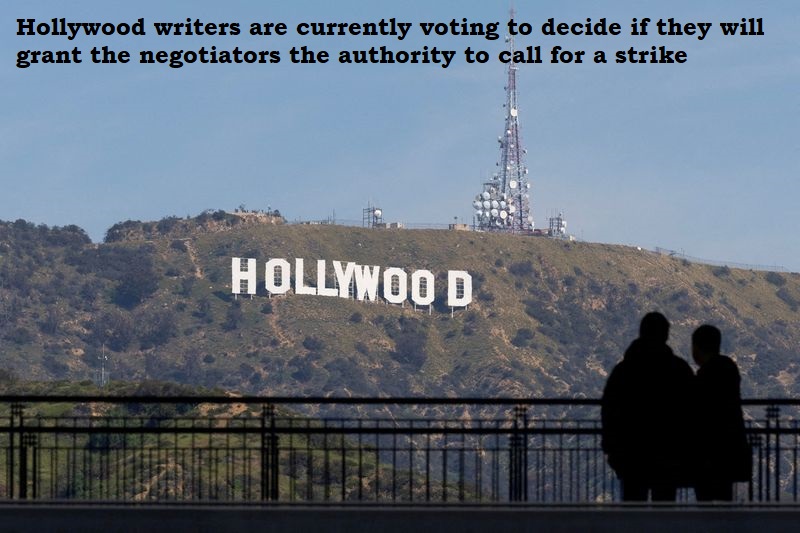
Hollywood television and movie writers are wrapping up a critical vote this week, which, if passed, would authorize a strike if media companies don’t agree to raise pay. The Writers Guild of America (WGA) has requested roughly 11,500 members to give them the power to call a strike after May 1 if contract talks break down. Writers are pushing for higher pay from companies such as Netflix and Walt Disney, arguing that their compensation has suffered due to the streaming revolution, resulting in shorter TV seasons and smaller residual payments. The WGA is also seeking increases in minimum salaries, changes to practices that reduce pay, and safeguards against studios using AI to generate new scripts from writers’ previous work.
The last WGA strike occurred in 2007-2008 and lasted 100 days, resulting in an estimated cost of $2.1 billion to the California economy. With the industry still recovering from the pandemic and under pressure to make streaming more profitable, a prolonged strike could be costly. Studios are keen to avoid another disruption, particularly after COVID-19 shut down production worldwide for months. Although film and television work has rebounded, movie-going remains below pre-pandemic levels, and the broadcast television business is struggling as viewers and ad dollars migrate to streaming.
Writers believe the timing is right to push for higher pay as media companies work to find the right balance between spending and profits from streaming. The WGA wants to ensure that writers are paid properly, as half of TV series writers now work at minimum salary levels, compared to one-third in the 2013-2014 season, according to Guild statistics. The median pay for scribes at the higher writer/producer level has fallen 4% over the last decade. However, studios counter that budgets are tight at a time when Wall Street wants to see profits from multi-billion dollar streaming investments that are draining balance sheets.
Disney is laying off 7,000 people as it tries to cut $5.5 billion in costs. Warner Bros Discovery, created by a recent merger, recently announced that it would re-vamp its streaming efforts as it chases profitability. Writers also have greater opportunities than ever to find work, with a record 599 scripted shows released in 2022, and residuals paid to TV writers hit an unprecedented $493.6 million in 2021. The Alliance of Motion Picture and Television Producers (AMPTP), which represents Comcast Corp, Disney, Warner Bros, Netflix, and others, said in a statement that it was committed to ‘reaching a mutually beneficial deal.’
A strike authorization does not mean a work stoppage will happen, as in 2017, WGA members authorized a strike but reached a deal hours before writers headed to picket lines. If a strike is called, audiences would first see the impact on late-night talk shows, which use teams of writers to pen topical jokes, followed by daytime soap operas. Many comedies and dramas are filmed months in advance, giving them a longer lead time before fresh episodes would run out. Movies are written at least two years in advance, so near-term releases in cinemas would not be affected.

Post Your Comments